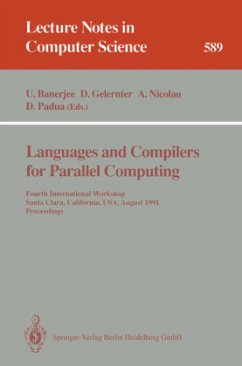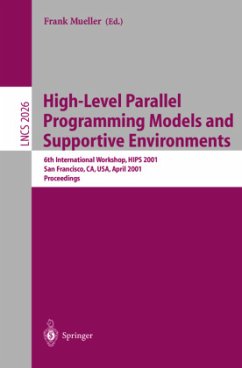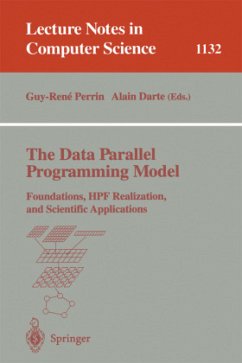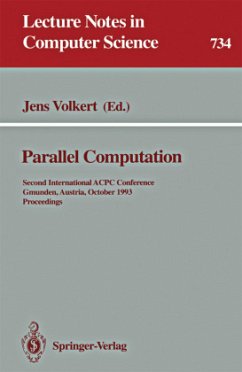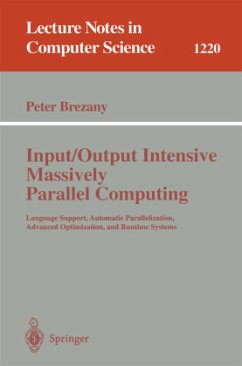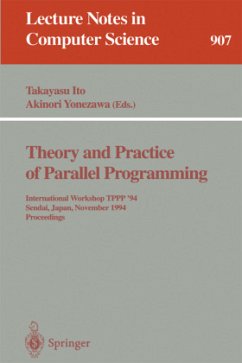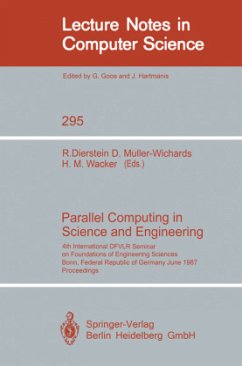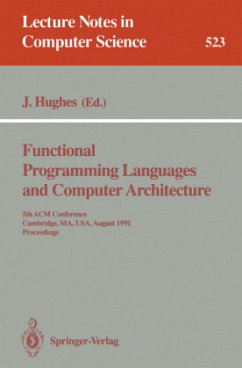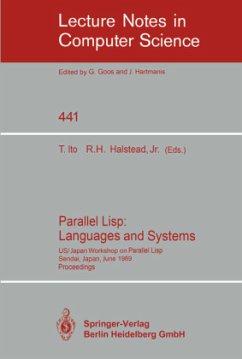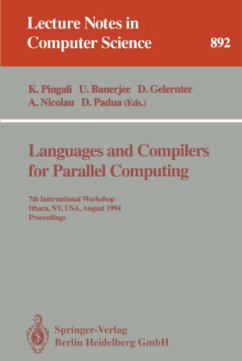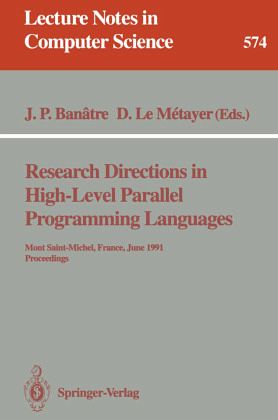
Research Directions in High-Level Parallel Programming Languages
Mont Saint-Michel, France, June 17-19, 1991 Proceedings
Mitarbeit: Banatre, Jean P.; Le Metayer, Daniel
Versandkostenfrei!
Versandfertig in 1-2 Wochen
39,99 €
inkl. MwSt.

PAYBACK Punkte
20 °P sammeln!
This volume contains most of the papers presented at theworkshop on research directions in high-level parallelprogramming languages, held at Mont Saint-Michel, France, inJune 1991. The motivation for organizing this workshop camefrom the emergence of a new class of formalisms fordescribing parallel computations in the last few years.Linda, Unity, Gamma, and the Cham are the most significantrepresentatives of this new class. Formalisms of this familypromote simple but powerful language features for describingdata and programs. These proposals appeared in differentcontexts and were applied in di...
This volume contains most of the papers presented at theworkshop on research directions in high-level parallelprogramming languages, held at Mont Saint-Michel, France, inJune 1991. The motivation for organizing this workshop camefrom the emergence of a new class of formalisms fordescribing parallel computations in the last few years.Linda, Unity, Gamma, and the Cham are the most significantrepresentatives of this new class. Formalisms of this familypromote simple but powerful language features for describingdata and programs. These proposals appeared in differentcontexts and were applied in different domains, and the goalof the workshop was to review the status of this new fieldand compare experiences. The workshop was organized intofour main sessions: Unity, Linda, Gamma, and ParallelProgram Design. The corresponding parts ofthe volume areintroduced respectively by J. Misra, D. Gelernter, D. LeMtayer, and J.-P. Ban tre.





